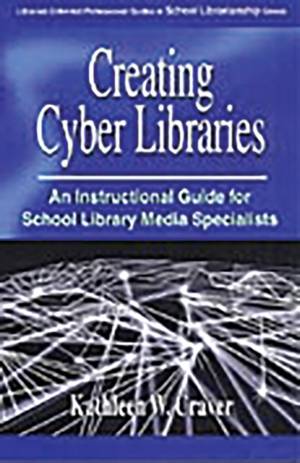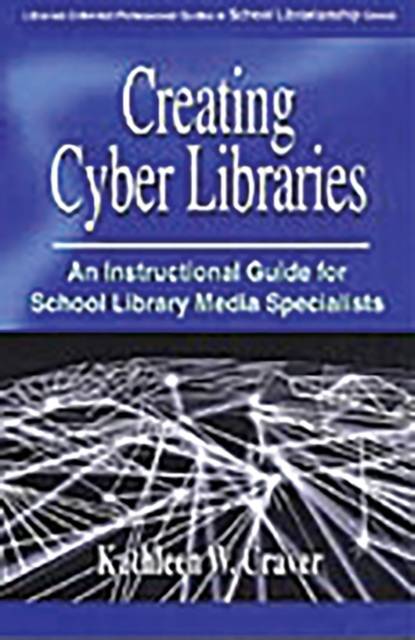
En raison d'une grêve chez bpost, votre commande pourrait être retardée. Vous avez besoin d’un livre rapidement ? Nos magasins vous accueillent à bras ouverts !
- Retrait gratuit dans votre magasin Club
- 7.000.000 titres dans notre catalogue
- Payer en toute sécurité
- Toujours un magasin près de chez vous
En raison de la grêve chez bpost, votre commande pourrait être retardée. Vous avez besoin d’un livre rapidement ? Nos magasins vous accueillent à bras ouverts !
- Retrait gratuit dans votre magasin Club
- 7.000.0000 titres dans notre catalogue
- Payer en toute sécurité
- Toujours un magasin près de chez vous
Creating Cyber Libraries
An Instructional Guide for School Library Media Specialists
Kathleen Craver
84,95 €
+ 169 points
Description
As prices of traditional library materials increase, and space to house them shrinks, savvy school library media specialists are creating cyber libraries, or school libraries on the Internet. These libraries offer students and their parents 24-hour access and are invaluable for providing up-to-date information in a way traditional materials cannot. This guide outlines the steps library media specialists can take to create a cyber library, provide content and policies for use, and maintain it for maximum efficiency.
Craver justifies the need for cyber libraries in the 21st century, and how they can help librarians to meet the standards in Information Power (1998). She explains the different types of cyber libraries available, along with their advantages and disadvantages. She discusses how to construct them using portals or by acquiring fee-based cyber libraries, and what policies should be in place to protect both the school and its students. Also included are instructions for establishing remote access to subscription databases, creating cyber reading rooms, and providing instructional services to student users. Once a cyber library is created, it must be maintained and evaluated to keep it useful and current, and this book provides guidelines to do so. Finally, there is a chapter on promoting the cyber library, so the school community is aware of its features and participates in its growth process. No school library should be without this volume!Spécifications
Parties prenantes
- Auteur(s) :
- Editeur:
Contenu
- Nombre de pages :
- 256
- Langue:
- Anglais
- Collection :
Caractéristiques
- EAN:
- 9780313320804
- Date de parution :
- 30-05-02
- Format:
- Livre broché
- Format numérique:
- Trade paperback (VS)
- Dimensions :
- 156 mm x 234 mm
- Poids :
- 421 g

Les avis
Nous publions uniquement les avis qui respectent les conditions requises. Consultez nos conditions pour les avis.






